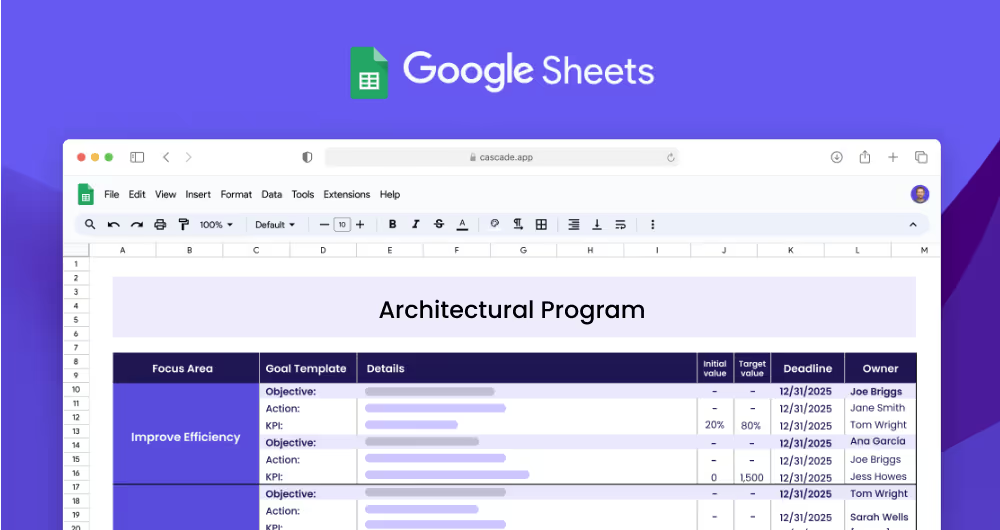An architectural program is a comprehensive plan that outlines the goals and objectives of a building project. It includes a detailed design process, budget, timeline, and resources needed to achieve the desired results. The program should also include the strategies and tactics needed to complete the project successfully. It should be comprehensive enough to cover all aspects of the project, from design, to construction, to management. The program is an essential part of any building project and must be tailored to meet the needs of the project.
Each focus area has its own objectives, projects, and KPIs to ensure that the strategy is comprehensive and effective.
The Architectural Program Template is designed for architects, building professionals, and project managers across all industries to plan and manage large-scale building projects. The template helps to streamline and simplify the process of creating a comprehensive plan that outlines the goals and objectives of a building project. It includes a detailed design process, budget, timeline, and resources needed to achieve the desired results. The template also includes strategies and tactics needed to complete the project successfully.
When creating an Architectural Program, it is important to define clear focus areas. A focus area is the broader goal of the project, such as improving design accuracy or streamlining the delivery process. The focus area should be broken down into smaller, more manageable objectives and actions that can be tracked and measured.
Objectives are specific goals that need to be achieved in order to fulfill the focus area. For example, if the focus area is to streamline the design process, one objective could be to improve project delivery times. This objective can then be broken down into actionable steps that will help to achieve the goal.
Once objectives are identified, it is important to set measurable targets, also known as Key Performance Indicators (KPIs). KPIs are specific metrics that can be used to measure progress towards an objective. For example, if the objective is to improve project delivery times, then a KPI could be to decrease the average project delivery time from 30 days to 15 days. This KPI should have an initial value, a target value, and a unit of measurement.
Once the KPIs are set, it is important to implement related projects to achieve the KPIs. These projects should be specific, actionable steps that can help to reach the desired goal. For example, if the KPI is to decrease the average project delivery time from 30 days to 15 days, then a related project could be to review and optimize the design process.
If you’re ready to elevate your strategy and see faster outcomes, Cascade Strategy Execution Software presents an advanced alternative to traditional spreadsheets. With Cascade, the focus shifts from merely tracking to actively managing strategy via real-time updates, centralized collaboration, and automated reporting. This enhances your team's ability to stay aligned and quickly adapt to changes, ensuring your organization's success. Sign-up for free or book a demo with one of our strategy experts to discover how Cascade can revamp your strategy execution.


